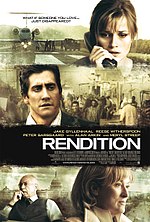
Knight at the Movies Archives
A whole lotta actin' goin' on in three new dramas
After a handful of movie drek Halle Berry is back in a film that releases her extraordinary talent. The movie is called Things We
Lost in the Fire and co-stars Benicio Del Toro. Both give Oscar caliber performances in director Susanne Bier’s poetic movie.
Berry plays Audrey Burke the wife of Steven (David Duchovny, very winning in a supporting role), one of those eternal optimists
whose greatest cause is his childhood friend, Jerry (Del Toro). Jerry has struggled with drug addiction for years and Steven has
always been there. When Steven is brutally murdered the grieving Audrey tentatively reaches out to Jerry and asks him to move in
with her and her kids. This is not a match made in Heaven and the two struggle to make a friendship work. The situation is not
entirely believable (and Audrey doesn’t seem to have any friends or much involvement with her family which is odd) but the intense
emotionality of the performances override these lapses in logic.
Bier’s movie focuses on the stages of grief as the characters experience them, often in very telling and resonant ways – the wife, for
example, cannot bear to go into the dead husband’s home office. Bier also highlights the intimacy of the story and the characters
by using extreme close ups of the characters in moments of tenderness – lips nuzzling an ear lobe, for example, drawing the
audience in closer. And Bier adds constant close ups of the characters’ eyes – the window into the soul. This is a very effective
device used throughout the movie and these intimate moments of everyday life have a cumulative effect. The dinner table scene,
late in the movie, with the family keenly aware of the missing father is like a portrait of grief in miniature. Scenes like this are
helped by the somber Spanish guitar music of Gustavo Santaolalla that practically weeps.
The camera stays very close to Berry and catches her insecurity, her indecision, and her anger. She brings her amazing rapport with
the audience to the part (which, surprisingly, is reinforced rather than diminished by her almost spectral beauty). She made a
smashing Bond girl and clearly she could coast from role to role on the strength of her gorgeous face alone. But Berry’s not
interested in that and with this part it’s become clear that her particular gifts work best with characters in the midst of a personal
crisis. Del Toro brings the same intensity of feeling to his part – he’s another whose best acting moments are favored by Bier’s
decision to bring the camera in very close. He has the same frazzled quality that Nick Nolte does and like Nolte he has the same
easy rapport with kids and trouble with the adults. Bier is also apparently a director that brings out the best in her actors.
Things We Lost in the Fire is a beautifully observed piece with two full blooded, marvelous portrayals at its core. Sad, funny, and very
human, Bier’s movie offers the audience a very satisfying emotional catharsis. Get out your hankies.
+++++++++++++++++++++++++++++++++++++++++++++++++++++++++++++++++++++++++++++++++++++++++++++
Sleuth, the 1972 movie based on the hit play is back. The movie is a cat and mouse game that ensues when a wealthy, successful
writer of mysteries and a young handsome actor, a penniless stud whose stolen his wife’s affections, agree to meet at the writer’s
home. Michael Caine who played the younger man in the movie (to Laurence Olivier’s cuckolded husband) now takes on the older
part with a fetching Jude Law stepping into Caine’s shoes.
It’s a stagy, preposterous movie that affords the two actors big, yeasty parts with long speeches and characters shifts. No wonder
that Caine came back (and that Law obviously relishes his part). It’s a fun bit of nonsense that – a creepy, lurid confection that
offers a continual, seductive gay undertone between the two (that becomes part of the fun as the picture moves toward its
conclusion) as a bonus. “Stay with me – you’re my kind of person” Caine begs Law at one point. “It’s quite tempting,” Law replies
and the wealthy sugar daddy temptations Caine is offering are apparent beginning with his ultra modern home where all the action
takes place. The home is a triumph of architectural minimalism – black and gray and silver with gleaming hard surfaces and blue
accent lights. It looks like an empty, slick nightclub with its pointy, menacing sculptures and marble floors and is such a large part
of the story that it should be credited as the third cast member in this hambone but entertaining movie. Tim Harvey is the
production designer who wins kudos for this ice palace as does Patrick Doyle with his Michael Nyman sounding icy string quartet music.
+++++++++++++++++++++++++++++++++++++++++++++++++++++++++++++++++++++++++++++++++++++++++++++
His name is Anwar and he’s a doll. He’s Egyptian and a decent, beautiful man with a decent, beautiful wife (Reese Witherspoon)
who's eight months pregnant, a darling, wide eyed, decent, beautiful little boy, and a worried, hovering mother. But poor Anwar
(Omar Metwally) is in the wrong place at the wrong time and after a street bombing in North Africa, a call traced to his cell phone
seems to tie him to the terrorist group responsible. At the instigation of a high ranking CIA official (Meryl Streep), Anwar is secretly
nabbed as he’s exiting a commercial flight, black hooded, and shipped off to a secret detention facility where he’s systematically
tortured day after day. This process, called “Extraordinary Rendition,” officially exists in our country and has been frequently used by
the current administration.
The story of Anwar, the subject of this questionable practice, and those around him, is the basis for Rendition, a movie that is told
in the broadest of strokes. Director Gavin Hood’s movie also stars Jake Gyllenhaal as a troubled CIA operative charged with getting
information out of Anwar and Peter Sarsgaard plays an aid to a powerful senator (Alan Arkin) who tries to help Witherspoon track
down her missing husband. Rendition is the latest in a long line of Hollywood “message” pictures that illuminates a social and/or
cultural issue by heightening the subject for dramatic effect, whipping up audience emotions in the process, and then finding an
emotionally satisfying resolve (along with the message) at the fade out. But the over scaled script is larded with plot points that add
to the movie’s unbelievability. If only torture and terrorism were as easy to dissect as the movie presents it (all terrorists keep
photo scrap books, right?). But like the message pictures of old (Gentlemen’s Agreement, say), Rendition is plenty entertaining
nonetheless and allows the bonus of allowing the audience to “tsk-tsk” their disapproval and sympathize with the good guys all at
once. Just once though, I’d like one of these unsung heroes like Anwar to NOT have the all American life, the standard pretty wife,
and especially the cute kid with the ready tears waiting and waiting and waiting for daddy to come home. Maybe he could be gay,
too.
Lost in the Fire and co-stars Benicio Del Toro. Both give Oscar caliber performances in director Susanne Bier’s poetic movie.
Berry plays Audrey Burke the wife of Steven (David Duchovny, very winning in a supporting role), one of those eternal optimists
whose greatest cause is his childhood friend, Jerry (Del Toro). Jerry has struggled with drug addiction for years and Steven has
always been there. When Steven is brutally murdered the grieving Audrey tentatively reaches out to Jerry and asks him to move in
with her and her kids. This is not a match made in Heaven and the two struggle to make a friendship work. The situation is not
entirely believable (and Audrey doesn’t seem to have any friends or much involvement with her family which is odd) but the intense
emotionality of the performances override these lapses in logic.
Bier’s movie focuses on the stages of grief as the characters experience them, often in very telling and resonant ways – the wife, for
example, cannot bear to go into the dead husband’s home office. Bier also highlights the intimacy of the story and the characters
by using extreme close ups of the characters in moments of tenderness – lips nuzzling an ear lobe, for example, drawing the
audience in closer. And Bier adds constant close ups of the characters’ eyes – the window into the soul. This is a very effective
device used throughout the movie and these intimate moments of everyday life have a cumulative effect. The dinner table scene,
late in the movie, with the family keenly aware of the missing father is like a portrait of grief in miniature. Scenes like this are
helped by the somber Spanish guitar music of Gustavo Santaolalla that practically weeps.
The camera stays very close to Berry and catches her insecurity, her indecision, and her anger. She brings her amazing rapport with
the audience to the part (which, surprisingly, is reinforced rather than diminished by her almost spectral beauty). She made a
smashing Bond girl and clearly she could coast from role to role on the strength of her gorgeous face alone. But Berry’s not
interested in that and with this part it’s become clear that her particular gifts work best with characters in the midst of a personal
crisis. Del Toro brings the same intensity of feeling to his part – he’s another whose best acting moments are favored by Bier’s
decision to bring the camera in very close. He has the same frazzled quality that Nick Nolte does and like Nolte he has the same
easy rapport with kids and trouble with the adults. Bier is also apparently a director that brings out the best in her actors.
Things We Lost in the Fire is a beautifully observed piece with two full blooded, marvelous portrayals at its core. Sad, funny, and very
human, Bier’s movie offers the audience a very satisfying emotional catharsis. Get out your hankies.
+++++++++++++++++++++++++++++++++++++++++++++++++++++++++++++++++++++++++++++++++++++++++++++
Sleuth, the 1972 movie based on the hit play is back. The movie is a cat and mouse game that ensues when a wealthy, successful
writer of mysteries and a young handsome actor, a penniless stud whose stolen his wife’s affections, agree to meet at the writer’s
home. Michael Caine who played the younger man in the movie (to Laurence Olivier’s cuckolded husband) now takes on the older
part with a fetching Jude Law stepping into Caine’s shoes.
It’s a stagy, preposterous movie that affords the two actors big, yeasty parts with long speeches and characters shifts. No wonder
that Caine came back (and that Law obviously relishes his part). It’s a fun bit of nonsense that – a creepy, lurid confection that
offers a continual, seductive gay undertone between the two (that becomes part of the fun as the picture moves toward its
conclusion) as a bonus. “Stay with me – you’re my kind of person” Caine begs Law at one point. “It’s quite tempting,” Law replies
and the wealthy sugar daddy temptations Caine is offering are apparent beginning with his ultra modern home where all the action
takes place. The home is a triumph of architectural minimalism – black and gray and silver with gleaming hard surfaces and blue
accent lights. It looks like an empty, slick nightclub with its pointy, menacing sculptures and marble floors and is such a large part
of the story that it should be credited as the third cast member in this hambone but entertaining movie. Tim Harvey is the
production designer who wins kudos for this ice palace as does Patrick Doyle with his Michael Nyman sounding icy string quartet music.
+++++++++++++++++++++++++++++++++++++++++++++++++++++++++++++++++++++++++++++++++++++++++++++
His name is Anwar and he’s a doll. He’s Egyptian and a decent, beautiful man with a decent, beautiful wife (Reese Witherspoon)
who's eight months pregnant, a darling, wide eyed, decent, beautiful little boy, and a worried, hovering mother. But poor Anwar
(Omar Metwally) is in the wrong place at the wrong time and after a street bombing in North Africa, a call traced to his cell phone
seems to tie him to the terrorist group responsible. At the instigation of a high ranking CIA official (Meryl Streep), Anwar is secretly
nabbed as he’s exiting a commercial flight, black hooded, and shipped off to a secret detention facility where he’s systematically
tortured day after day. This process, called “Extraordinary Rendition,” officially exists in our country and has been frequently used by
the current administration.
The story of Anwar, the subject of this questionable practice, and those around him, is the basis for Rendition, a movie that is told
in the broadest of strokes. Director Gavin Hood’s movie also stars Jake Gyllenhaal as a troubled CIA operative charged with getting
information out of Anwar and Peter Sarsgaard plays an aid to a powerful senator (Alan Arkin) who tries to help Witherspoon track
down her missing husband. Rendition is the latest in a long line of Hollywood “message” pictures that illuminates a social and/or
cultural issue by heightening the subject for dramatic effect, whipping up audience emotions in the process, and then finding an
emotionally satisfying resolve (along with the message) at the fade out. But the over scaled script is larded with plot points that add
to the movie’s unbelievability. If only torture and terrorism were as easy to dissect as the movie presents it (all terrorists keep
photo scrap books, right?). But like the message pictures of old (Gentlemen’s Agreement, say), Rendition is plenty entertaining
nonetheless and allows the bonus of allowing the audience to “tsk-tsk” their disapproval and sympathize with the good guys all at
once. Just once though, I’d like one of these unsung heroes like Anwar to NOT have the all American life, the standard pretty wife,
and especially the cute kid with the ready tears waiting and waiting and waiting for daddy to come home. Maybe he could be gay,
too.
Drama Queens:
Things We Lost in the Fire-Sleuth-Rendition
Expanded Edition of 10-17-07 Windy City Times Knight at the Movies Column
By Richard Knight, Jr.
Things We Lost in the Fire-Sleuth-Rendition
Expanded Edition of 10-17-07 Windy City Times Knight at the Movies Column
By Richard Knight, Jr.



